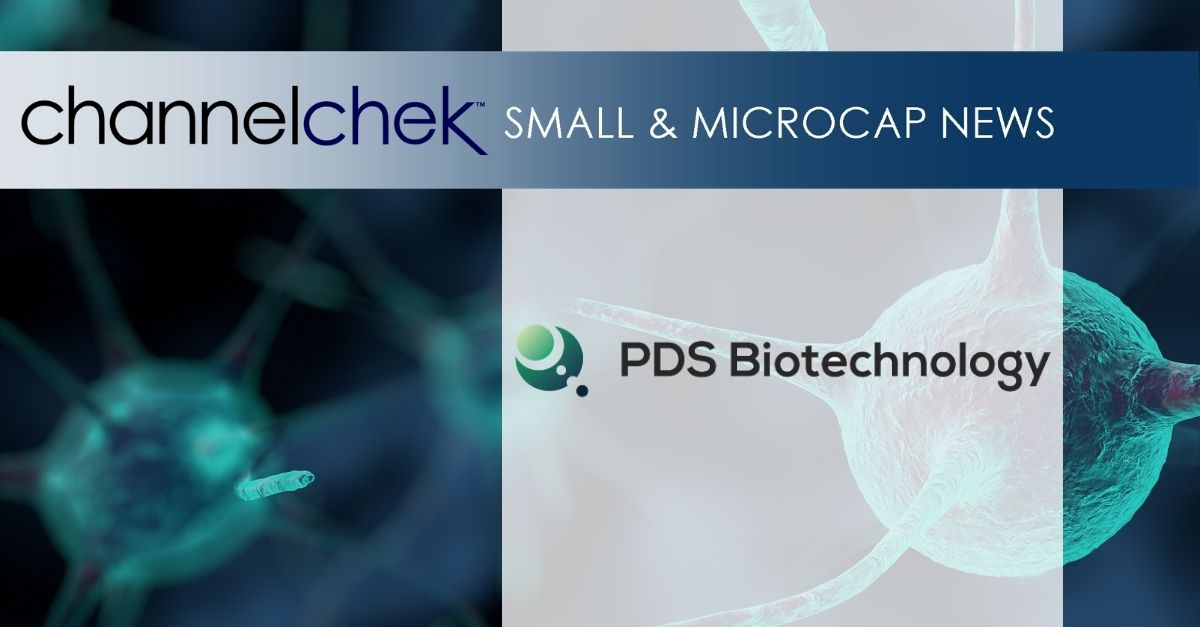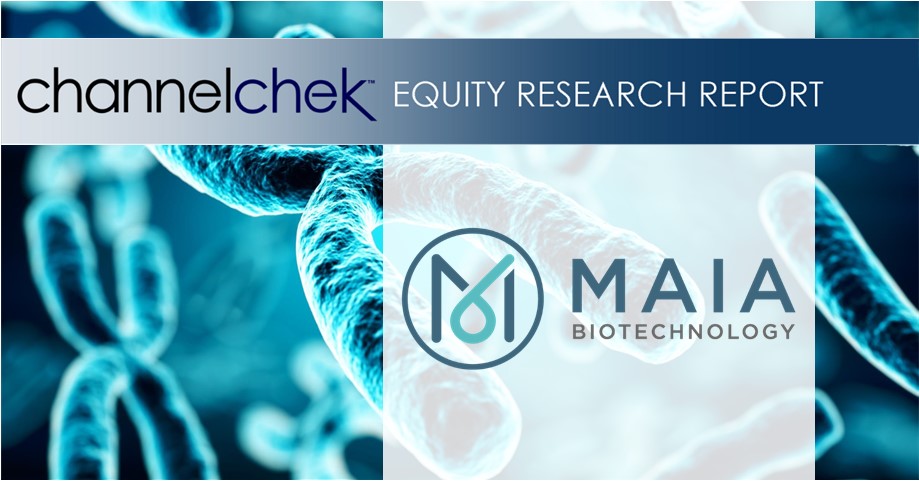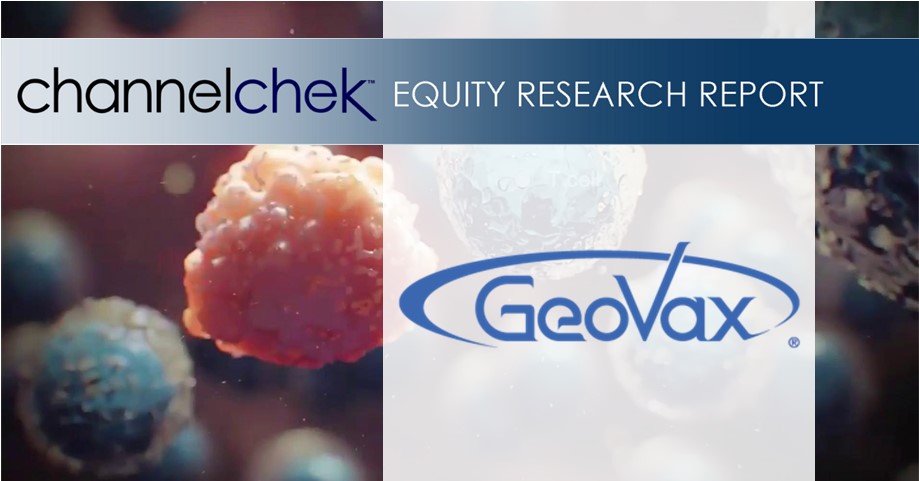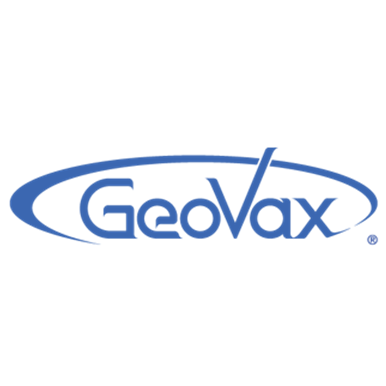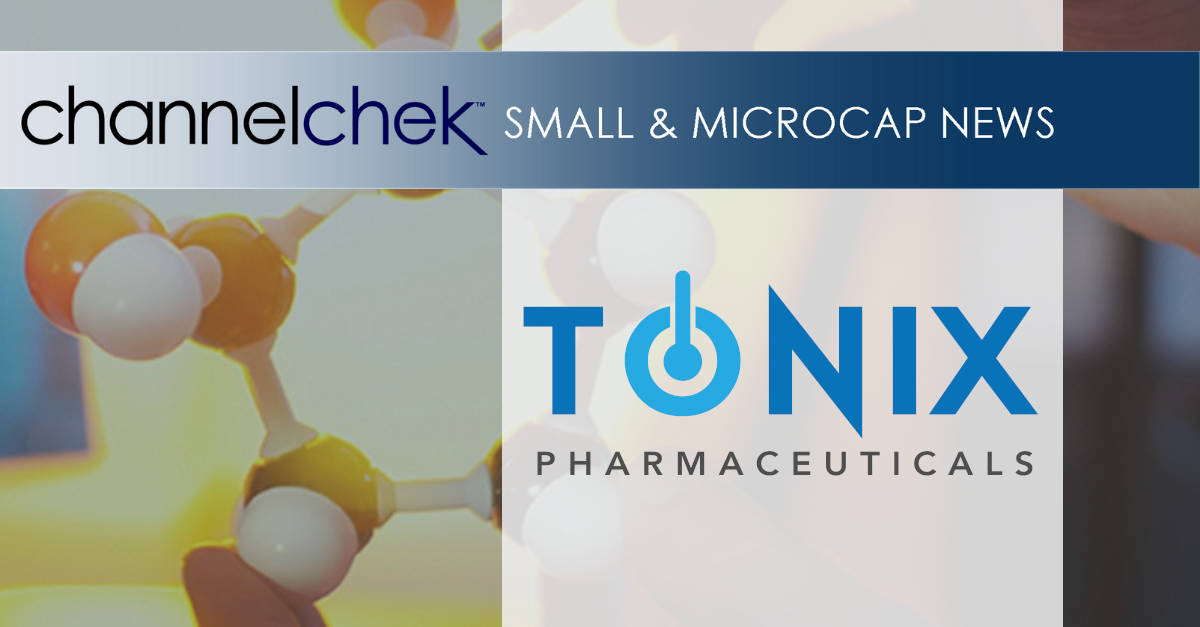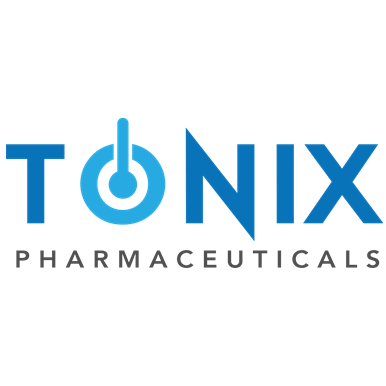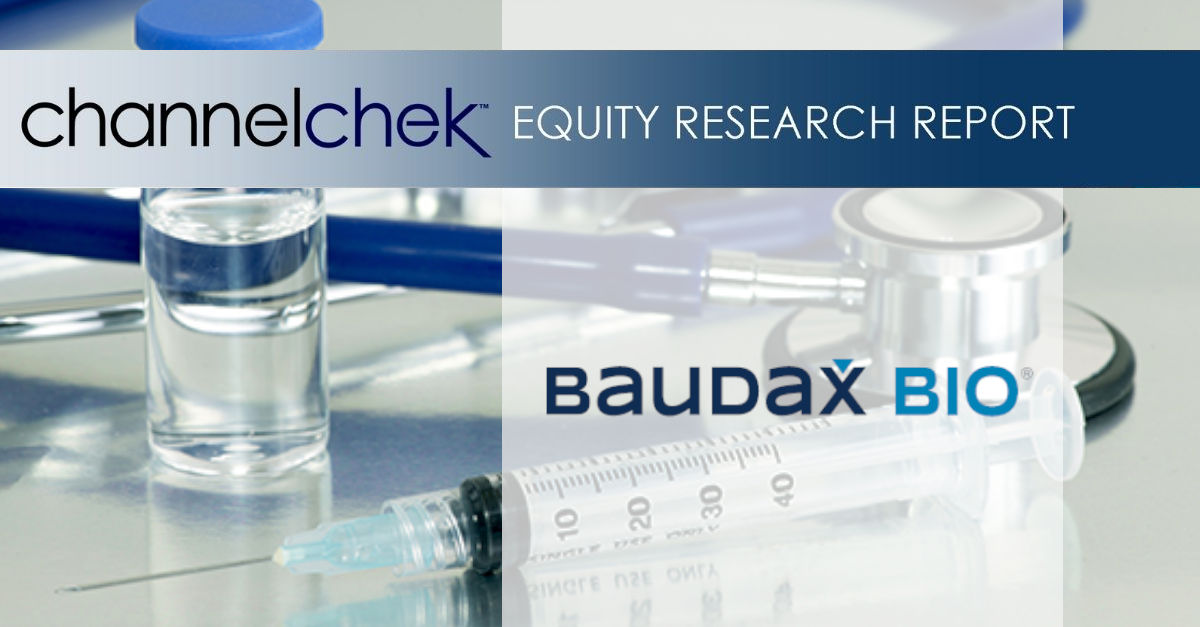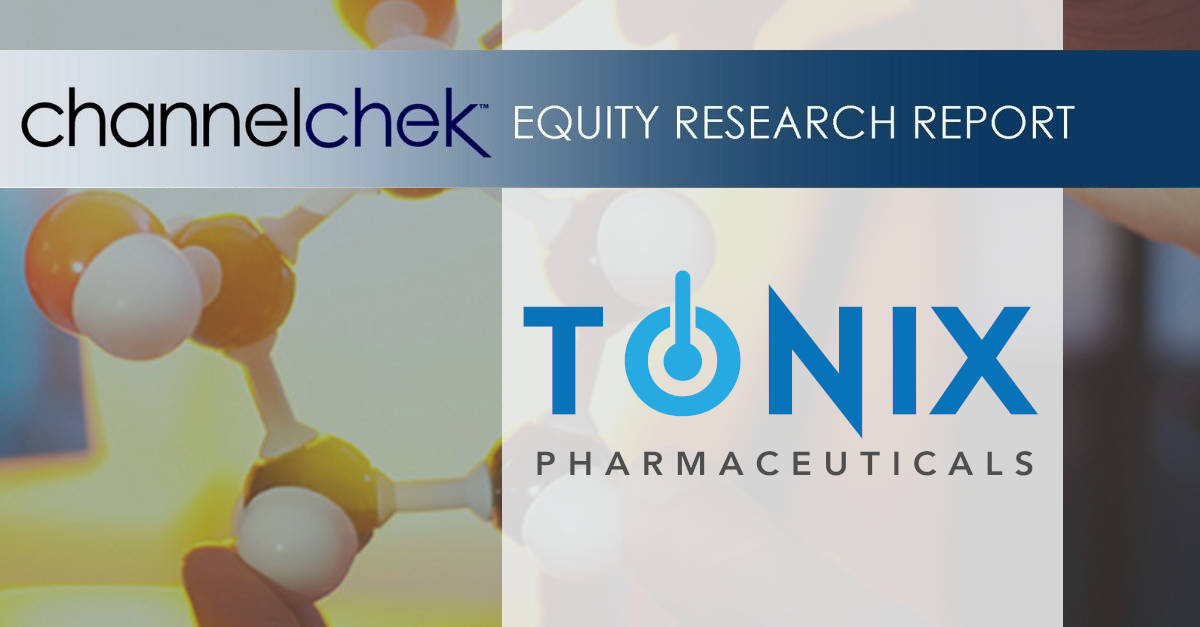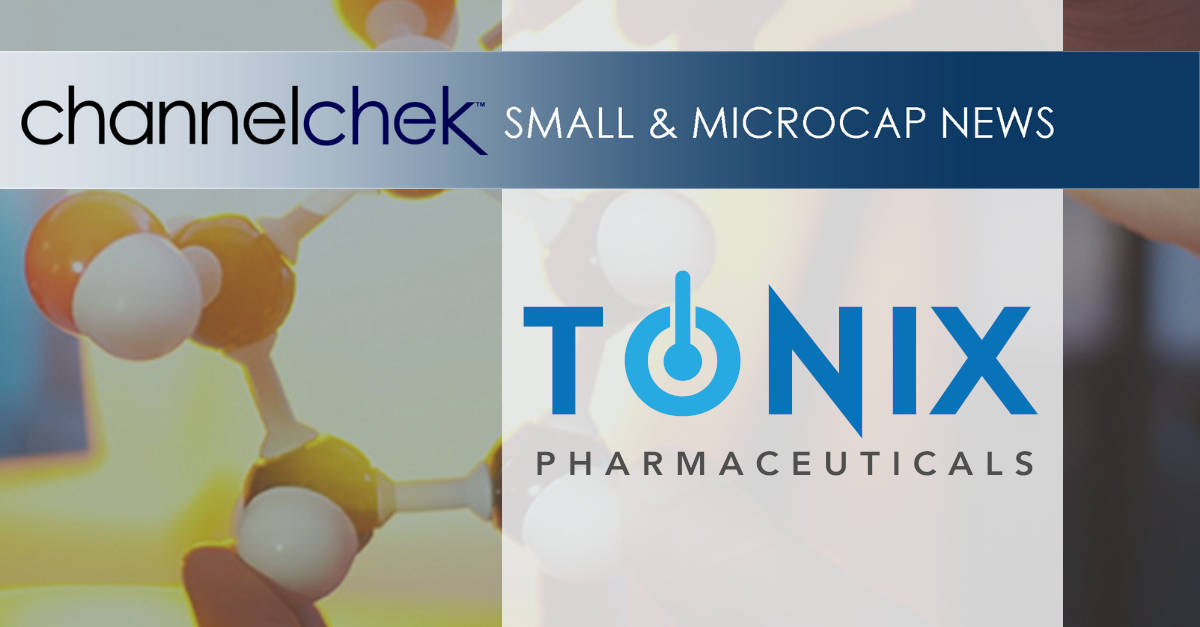Research News and Market Data on TNXP
July 06, 2023 7:00am EDT
“Examining the Working Definition for Long COVID” Included Presentations on Emerging Subgroups of Long COVID Patients Defined by Symptoms and Symptom Clusters
“Toward a Common Research Agenda in Infection-Associated Chronic Illnesses” Included Presentations on Long COVID Symptoms and Symptom Clusters in the Context of Recognized Infection-Associated Chronic Illnesses such as CFS/ME
Topline Results from Tonix’s Phase 2 PREVAIL Proof-of-Concept Study of TNX-102 SL for the Treatment of Fibromyalgia-Type Long COVID Expected Third Quarter 2023
CHATHAM, N.J., July 06, 2023 (GLOBE NEWSWIRE) — Tonix Pharmaceuticals Holding Corp. (Nasdaq: TNXP) (Tonix or the Company), a biopharmaceutical company, today announced comments relating to two recent meetings sponsored by the National Academies of Sciences, Engineering, and Medicine (National Academies) in Washington, D.C. and virtually, relating to the definition of Long COVID and to features of Long COVID that overlap with previously recognized infection-associated chronic conditions. The first meeting, “Examining the Working Definition for Long COVID”1, took place on June 22 and 23, and the second, “Toward a Common Research Agenda in Infection-Associated Chronic Illnesses”2 took place on June 29 and 30. Tonix Pharmaceuticals recognizes the potential benefits of defining subgroups of Long COVID patients based on their symptoms and recognizes the subgroup of Long COVID patients with symptoms that overlap with fibromyalgia. Tonix’s experience advancing TNX-102 SL (cyclobenzaprine HCl sublingual tablets)* as a treatment for fibromyalgia is the Company’s motivation for undertaking the development of TNX-102 SL for the management of Fibromyalgia-type Long COVID.
“Common symptoms of Long COVID, including multi-site pain, fatigue, unrefreshing sleep, and cognitive dysfunction, or ‘brain fog,’ are hallmarks of conditions like fibromyalgia and chronic fatigue syndrome/myalgic encephalomyelitis (CFS/ME),” said Seth Lederman, M.D., Chief Executive Officer of Tonix Pharmaceuticals. “Defining subgroups of Long COVID patients that overlap with fibromyalgia and CFS/ME is expected to facilitate the development of new treatments.3 We are studying TNX-102 SL in the subgroup of Long COVID patients whose symptoms overlap with fibromyalgia, which we have termed ‘Fibromyalgia-type Long COVID.’ We expect topline data from this 63-patient proof-of-concept study in the third quarter of 2023. Fibromyalgia has been recognized by the U.S. Food and Drug Administration (FDA) with three approved medicines. Consequently, measuring daily pain is a validated endpoint for FDA registrational studies in fibromyalgia.”
“The recent identification of Long COVID subgroups in the National Institutes of Allergy and Infectious Diseases (NIAID)-sponsored RECOVER study4 was an important step,” said Herbert Harris, M.D., Ph.D., Executive Vice President and Head of Translational Medicine of Tonix Pharmaceuticals. “In their recent publication, “Development of a Definition of Postacute Sequelae of SARS-CoV-2 Infection” cluster analysis of the symptom frequencies in the RECOVER study (Researching COVID to Enhance Recovery (RECOVER) research program) identified four subgroups of Long COVID patients. Cluster #4 represented approximately one quarter of the population (28%) and reported the highest frequencies of pain (back pain (58%), joint pain (64%) or muscle pain (60%)), high frequencies of fatigue (94%) and ’Brain Fog,’ (94%) and a high level of impairment of Quality of Life. We believe Cluster #4 is a subgroup of Long COVID that overlaps with fibromyalgia. We also believe that Cluster #3, representing another approximately 29% of the RECOVER cohort, includes many patients with Fibromyalgia-type Long COVID because 100% of that group suffer from ‘Brain Fog’, 94% experience fatigue and approximately one third experience pain (back pain (32%), joint pain (36%) or muscle pain (34%)).”
Dr. Lederman continued, “Fibromyalgia can result from a variety of different stressors, in addition to infectious illnesses, including hormonal, metabolic, and psychological stressors.3,5 It can be challenging to distinguish fibromyalgia and CFS/ME clinically, given the high level of symptom overlap between them. Each of these conditions is defined by a constellation of symptoms, and there is no widely recognized diagnostic laboratory test that distinguishes them.”
In April 2023, the Company completed enrollment of 63 participants in the PREVAIL study, a Phase 2 proof-of-concept study of TNX-102 SL for fibromyalgia-type Long COVID. Topline results from the PREVAIL trial are expected in the third quarter of 2023. In addition, the Company presented its analysis of a Fibromyalgia-type Long COVID subgroup from the TriNetX claims database at the BIO-sponsored Long COVID meeting in February 2023.6,7 That study provided real-world evidence that the majority of Long COVID patients present with a constellation of symptoms that overlap with fibromyalgia and CFS/ME. These symptoms include fatigue, cognitive symptoms, and multi-site pain. Fibromyalgia-type Long COVID, like fibromyalgia and CFS/ME, appears to be both a subgroup of Long COVID and one of several chronic overlapping pain conditions that have in common the neurological process called central and peripheral sensitization, which is increasingly known by the term nociplastic pain.
About the Phase 2 PREVAIL Study
The Phase 2 PREVAIL study is a 14-week double-blind, randomized, multicenter, placebo-controlled study to evaluate the efficacy and safety of TNX-102 SL taken daily at bedtime in patients with multi-site pain associated with post-acute sequelae of SARS-CoV-2 infection (PASC). The trial is being conducted at approximately 30 sites in the U.S. The primary efficacy endpoint will be the change from baseline in the weekly average of daily self-reported worst pain intensity scores at the Week 14 endpoint. Key secondary efficacy endpoints include change from baseline in self-reported scores for sleep disturbance, fatigue, and cognitive function. Topline results are expected in the third quarter of 2023.
For more information, see ClinicalTrials.gov Identifier: NCT05472090.
About Long COVID or Post-Acute Sequelae of COVID-19 (PASC)
Post-acute sequelae of COVID-19, or PASC is the formal name for a condition now widely known as Long COVID. Although most people recover from COVID-19 within weeks of the acute illness, a substantial portion develops a chronic syndrome called Long COVID. These individuals experience a constellation of disabling symptoms long past the time of recovery from acute COVID-19. Most Long COVID patients who have been studied appear to have cleared the SARS-CoV-2 infection from their systems. The symptoms of Long COVID can include fatigue, sleep disorders, multi-site pain, fevers, shortness of breath, cognitive impairment described as “brain fog” or memory disturbance, gastrointestinal symptoms, anxiety, and depression. Long COVID can persist for many months and can range in severity from mild to incapacitating. Several cohort studies have reported that the persistence of symptoms following SARS-CoV-2 infection occurs in approximately 10 – 30% of patients, depending on a variety of factors, including the strain of SARS-CoV-2 that was prevalent at the time of their infection.7-9 Long COVID is typically associated with moderate or severe COVID-19, but can occur after mild COVID-19 or even after asymptomatic SARS-CoV-2 infection. Patients with Long COVID are sometimes referred to as “long-haulers.” Long COVID is a chronic disabling condition that is expected to result in a significant global health and economic burden.8-11 In response to the urgent need for therapies that address Long COVID, Congress awarded $1.15 billion to the National Institutes of Health to study Long COVID in December 2020.12 The U.S. Department of Health and Human Services National Research Action Plan on Long COVID13, released in August 2022, addresses the overlap of Long COVID with CFS/ME, which, like fibromyalgia, is one of the overlapping chronic pain syndromes with central and peripheral sensitization.14 A published survey15 found comparable pain, fatigue, and functional impairment between Long COVID, fibromyalgia, and CFS/ME. This symptom overlap between these conditions has suggested that altered neurologic function is one of the leading hypotheses to explain them.16 While the vaccines available in the U.S., through either FDA approval or under Emergency Use Authorization, have been shown to prevent acute COVID, their ability to prevent Long COVID is unknown. There is currently no approved drug for the treatment of Long COVID.
About TNX-102 SL
TNX-102 SL is a patented sublingual tablet formulation of cyclobenzaprine hydrochloride which provides rapid transmucosal absorption and reduced production of a long half-life active metabolite, norcyclobenzaprine, due to bypass of first-pass hepatic metabolism. As a multifunctional agent with potent binding and antagonist activities at the 5-HT2A-serotonergic, α1-adrenergic, H1-histaminergic, and M1-muscarinic receptors, TNX-102 SL is in development as a daily bedtime treatment for fibromyalgia, Long COVID (formally known as post-acute sequelae of COVID-19 [PASC]), alcohol use disorder and agitation in Alzheimer’s disease. The United States Patent and Trademark Office (USPTO) issued United States Patent No. 9636408 in May 2017, Patent No. 9956188 in May 2018, Patent No. 10117936 in November 2018, Patent No. 10,357,465 in July 2019, and Patent No. 10736859 in August 2020. The Protectic™ protective eutectic and Angstro-Technology™ formulation claimed in the patent are important elements of Tonix’s proprietary TNX-102 SL composition. These patents are expected to provide TNX-102 SL, upon NDA approval, with U.S. market exclusivity until 2034/2035.
*TNX-102 SL is an investigational new drug and is not approved for any indication
1.) National Academies meeting #1: Examining the Working Definition for Long COVID – Workshop | National Academies
2.) National Academies meeting #2: Toward a Common Research Agenda in Infection – Associated Chronic Illnesses A Workshop to Examine Common, Overlapping Clinical and Biological Factors | National Academies
3.) Clauw DJ, and Calabrese L. Ann Rheum Dis. 2023 May 25:ard-2023-224250.
4.) Thaweethai T, et al. JAMA. 2023 Jun 13;329(22):1934-1946.
5.) Clauw DJ, et al. Pain. 2020 Aug;161(8):1694-1697.
6.) Feb 22, 2023 Tonix Pharmaceuticals Press Release. Tonix Pharmaceuticals Describes Emerging Research on the Incidence of Multi-Site Pain Symptoms in Long COVID Patients During Event Titled, “Long COVID: What Will it Take to Accelerate Therapeutic Progress?” :: Tonix Pharmaceuticals Holding Corp. (TNXP)
7.) Harris, H. et al. Tonix data on file 2023
8.) Briggs, A, and Vassall, A. (2021) Nature 593(7860): 502-505
9.) Nittas V, et al. (2022) Public Health Rev. 43:1604501.
10.) Davis, HE., et al. (2021) EClinicalMedicine 38:101019.
11.) Martin C, et al. (2021) “PLoS One. 16(12):e0260843.
12.) The NIH provision of Title III Health and Human Services, Division M–Coronavirus Response and Relief Supplemental Appropriations Act, 2021, of H.R. 133, The Consolidated Appropriations Act of 2021. The bill was enacted into law on 27 December 2020, becoming Public Law 116-260.
13.) Department of Health and Human Services, Office of the Assistant Secretary for Health. 2022. National Research Action Plan on Long COVID, 200 Independence Ave SW, Washington, DC 20201. www.covid.gov/assets/files/National-Research-Action-Plan-on-Long-COVID-08012022.pdf
14.) Maixner W, et al. J Pain. 2016 Sep;17(9 Suppl):T93-T107.
15.) Haider S, et al. Pain. 2023;164(2):385-401.
16.) Sutherland, S., Scientific American, Feb 14, 2023,
Tonix Pharmaceuticals Holding Corp.*
Tonix is a biopharmaceutical company focused on commercializing, developing, discovering and licensing therapeutics to treat and prevent human disease and alleviate suffering. Tonix markets Zembrace® SymTouch® (sumatriptan injection) 3 mg and Tosymra® (sumatriptan nasal spray) 10 mg. Zembrace SymTouch and Tosymra are each indicated for the treatment of acute migraine with or without aura in adults. Tonix’s development portfolio is composed of central nervous system (CNS), rare disease, immunology and infectious disease product candidates. Tonix’s CNS development portfolio includes both small molecules and biologics to treat pain, neurologic, psychiatric and addiction conditions. Tonix’s lead CNS candidate, TNX-102 SL (cyclobenzaprine HCl sublingual tablet), is in mid-Phase 3 development for the management of fibromyalgia with topline data expected in the first quarter of 2024. TNX-102 SL is also being developed to treat Long COVID, a chronic post-acute COVID-19 condition. Enrollment in a Phase 2 study has been completed, and topline results are expected in the third quarter of 2023. TNX-601 ER (tianeptine hemioxalate extended-release tablets), a once-daily formulation being developed as a treatment for major depressive disorder (MDD), is also currently enrolling with topline results expected in the first quarter of 2024. TNX-4300 (estianeptine) is a small molecule oral therapeutic in preclinical development to treat MDD, Alzheimer’s disease and Parkinson’s disease. TNX-1900 (intranasal potentiated oxytocin), in development for chronic migraine, is currently enrolling with topline data expected in the fourth quarter of 2023. TNX-1300 (cocaine esterase) is a biologic designed to treat cocaine intoxication and has been granted Breakthrough Therapy designation by the FDA. A Phase 2 study of TNX-1300 is expected to be initiated in the third quarter of 2023. Tonix’s rare disease development portfolio includes TNX-2900 (intranasal potentiated oxytocin) for the treatment of Prader-Willi syndrome. TNX-2900 has been granted Orphan Drug designation by the FDA. Tonix’s immunology development portfolio includes biologics to address organ transplant rejection, autoimmunity and cancer, including TNX-1500, which is a humanized monoclonal antibody targeting CD40-ligand (CD40L or CD154) being developed for the prevention of allograft rejection and for the treatment of autoimmune diseases. A Phase 1 study of TNX-1500 is expected to be initiated in the third quarter of 2023. Tonix’s infectious disease pipeline includes TNX-801, a vaccine in development to prevent smallpox and mpox. TNX-801 also serves as the live virus vaccine platform or recombinant pox vaccine platform for other infectious diseases. The infectious disease development portfolio also includes TNX-3900 and TNX-4000, classes of broad-spectrum small molecule oral antivirals.
* Tonix’s product development candidates are investigational new drugs or biologics and have not been approved for any indication.
Zembrace SymTouch and Tosymra are registered trademarks of Tonix Medicines. Intravail is a registered trademark of Aegis Therapeutics, LLC, a wholly owned subsidiary of Neurelis, Inc. All other marks are the property of their respective owners.
This press release and further information about Tonix can be found at www.tonixpharma.com.
Forward Looking Statements
Certain statements in this press release are forward-looking within the meaning of the Private Securities Litigation Reform Act of 1995. These statements may be identified by the use of forward-looking words such as “anticipate,” “believe,” “forecast,” “estimate,” “expect,” and “intend,” among others. These forward-looking statements are based on Tonix’s current expectations and actual results could differ materially. There are a number of factors that could cause actual events to differ materially from those indicated by such forward-looking statements. These factors include, but are not limited to, risks related to the failure to obtain FDA clearances or approvals and noncompliance with FDA regulations; risks related to the failure to successfully market any of our products; risks related to the timing and progress of clinical development of our product candidates; our need for additional financing; uncertainties of patent protection and litigation; uncertainties of government or third party payor reimbursement; limited research and development efforts and dependence upon third parties; and substantial competition. As with any pharmaceutical under development, there are significant risks in the development, regulatory approval and commercialization of new products. Tonix does not undertake an obligation to update or revise any forward-looking statement. Investors should read the risk factors set forth in the Annual Report on Form 10-K for the year ended December 31, 2022, as filed with the Securities and Exchange Commission (the “SEC”) on March 13, 2023, and periodic reports filed with the SEC on or after the date thereof. All of Tonix’s forward-looking statements are expressly qualified by all such risk factors and other cautionary statements. The information set forth herein speaks only as of the date thereof.
Investor Contact
Jessica Morris
Tonix Pharmaceuticals
investor.relations@tonixpharma.com
(862) 904-8182
Peter Vozzo
ICR Westwicke
peter.vozzo@westwicke.com
(443) 213-0505
Media Contact
Ben Shannon
ICR Westwicke
ben.shannon@westwicke.com
(919) 360-3039
Zembrace® SymTouch® (sumatriptan Injection): IMPORTANT SAFETY INFORMATION
Zembrace SymTouch (Zembrace) can cause serious side effects, including heart attack and other heart problems, which may lead to death. Stop use and get emergency help if you have any signs of a heart attack:
- discomfort in the center of your chest that lasts for more than a few minutes or goes away and comes back
- severe tightness, pain, pressure, or heaviness in your chest, throat, neck, or jaw
- pain or discomfort in your arms, back, neck, jaw or stomach
- shortness of breath with or without chest discomfort
- breaking out in a cold sweat
- nausea or vomiting
- feeling lightheaded
Zembrace is not for people with risk factors for heart disease (high blood pressure or cholesterol, smoking, overweight, diabetes, family history of heart disease) unless a heart exam shows no problem.
Do not use Zembrace if you have:
- history of heart problems
- narrowing of blood vessels to your legs, arms, stomach, or kidney (peripheral vascular disease)
- uncontrolled high blood pressure
- hemiplegic or basilar migraines. If you are not sure if you have these, ask your provider.
- had a stroke, transient ischemic attacks (TIAs), or problems with blood circulation
- severe liver problems
- taken any of the following medicines in the last 24 hours: almotriptan, eletriptan, frovatriptan, naratriptan, rizatriptan, ergotamines, dihydroergotamine.
- are taking certain antidepressants, known as monoamine oxidase (MAO)-A inhibitors or it has been 2 weeks or less since you stopped taking a MAO-A inhibitor. Ask your provider for a list of these medicines if you are not sure.
- an allergy to sumatriptan or any of the components of Zembrace
Tell your provider about all of your medical conditions and medicines you take, including vitamins and supplements.
Zembrace can cause dizziness, weakness, or drowsiness. If so, do not drive a car, use machinery, or do anything where you need to be alert.
Zembrace may cause serious side effects including:
- changes in color or sensation in your fingers and toes
- sudden or severe stomach pain, stomach pain after meals, weight loss, nausea or vomiting, constipation or diarrhea, bloody diarrhea, fever
- cramping and pain in your legs or hips; feeling of heaviness or tightness in your leg muscles; burning or aching pain in your feet or toes while resting; numbness, tingling, or weakness in your legs; cold feeling or color changes in one or both legs or feet
- increased blood pressure including a sudden severe increase even if you have no history of high blood pressure
- medication overuse headaches from using migraine medicine for 10 or more days each month. If your headaches get worse, call your provider.
- serotonin syndrome, a rare but serious problem that can happen in people using Zembrace, especially when used with anti-depressant medicines called SSRIs or SNRIs. Call your provider right away if you have: mental changes such as seeing things that are not there (hallucinations), agitation, or coma; fast heartbeat; changes in blood pressure; high body temperature; tight muscles; or trouble walking.
- hives (itchy bumps); swelling of your tongue, mouth, or throat
- seizures even in people who have never had seizures before
The most common side effects of Zembrace include: pain and redness at injection site; tingling or numbness in your fingers or toes; dizziness; warm, hot, burning feeling to your face (flushing); discomfort or stiffness in your neck; feeling weak, drowsy, or tired.
Tell your provider if you have any side effect that bothers you or does not go away. These are not all the possible side effects of Zembrace. For more information, ask your provider.
This is the most important information to know about Zembrace but is not comprehensive. For more information, talk to your provider and read the Patient Information and Instructions for Use. You can also visit www.upsher-smith.com or call 1-888-650-3789.
You are encouraged to report adverse effects of prescription drugs to the FDA. Visit www.fda.gov/medwatch, or call 1-800-FDA-1088.
INDICATION AND USAGE
Zembrace is a prescription medicine used to treat acute migraine headaches with or without aura in adults who have been diagnosed with migraine.
Zembrace is not used to prevent migraines. It is not known if it is safe and effective in children under 18 years of age.
Tosymra® (sumatriptan nasal spray): IMPORTANT SAFETY INFORMATION
Tosymra can cause serious side effects, including heart attack and other heart problems, which may lead to death. Stop Tosymra and get emergency medical help if you have any signs of heart attack:
- discomfort in the center of your chest that lasts for more than a few minutes or goes away and comes back
- severe tightness, pain, pressure, or heaviness in your chest, throat, neck, or jaw
- pain or discomfort in your arms, back, neck, jaw, or stomach
- shortness of breath with or without chest discomfort
- breaking out in a cold sweat
- nausea or vomiting
- feeling lightheaded
Tosymra is not for people with risk factors for heart disease (high blood pressure or cholesterol, smoking, overweight, diabetes, family history of heart disease) unless a heart exam is done and shows no problem.
Do not use Tosymra if you have:
- history of heart problems
- narrowing of blood vessels to your legs, arms, stomach, or kidney (peripheral vascular disease)
- uncontrolled high blood pressure
- severe liver problems
- hemiplegic or basilar migraines. If you are not sure if you have these, ask your healthcare provider.
- had a stroke, transient ischemic attacks (TIAs), or problems with blood circulation
- taken any of the following medicines in the last 24 hours: almotriptan, eletriptan, frovatriptan, naratriptan, rizatriptan, ergotamines, or dihydroergotamine. Ask your provider if you are not sure if your medicine is listed above.
- are taking certain antidepressants, known as monoamine oxidase (MAO)-A inhibitors or it has been 2 weeks or less since you stopped taking a MAO-A inhibitor. Ask your provider for a list of these medicines if you are not sure.
- an allergy to sumatriptan or any ingredient in Tosymra
Tell your provider about all of your medical conditions and medicines you take, including vitamins and supplements.
Tosymra can cause dizziness, weakness, or drowsiness. If so, do not drive a car, use machinery, or do anything where you need to be alert.
Tosymra may cause serious side effects including:
- changes in color or sensation in your fingers and toes
- sudden or severe stomach pain, stomach pain after meals, weight loss, nausea or vomiting, constipation or diarrhea, bloody diarrhea, fever
- cramping and pain in your legs or hips, feeling of heaviness or tightness in your leg muscles, burning or aching pain in your feet or toes while resting, numbness, tingling, or weakness in your legs, cold feeling or color changes in one or both legs or feet
- increased blood pressure including a sudden severe increase even if you have no history of high blood pressure
- medication overuse headaches from using migraine medicine for 10 or more days each month. If your headaches get worse, call your provider.
- serotonin syndrome, a rare but serious problem that can happen in people using Tosymra, especially when used with anti-depressant medicines called SSRIs or SNRIs. Call your provider right away if you have: mental changes such as seeing things that are not there (hallucinations), agitation, or coma; fast heartbeat; changes in blood pressure; high body temperature; tight muscles; or trouble walking.
- hives (itchy bumps); swelling of your tongue, mouth, or throat
- seizures even in people who have never had seizures before
The most common side effects of Tosymra include: tingling, dizziness, feeling warm or hot, burning feeling, feeling of heaviness, feeling of pressure, flushing, feeling of tightness, numbness, application site (nasal) reactions, abnormal taste, and throat irritation.
Tell your provider if you have any side effect that bothers you or does not go away. These are not all the possible side effects of Tosymra. For more information, ask your provider.
This is the most important information to know about Tosymra but is not comprehensive. For more information, talk to your provider and read the Patient Information and Instructions for Use. You can also visit www.upsher-smith.com or call 1-888-650-3789.
You are encouraged to report negative side effects of prescription drugs to the FDA. Visit www.fda.gov/medwatch, or call 1-800-FDA-1088.
INDICATION AND USAGE
Tosymra is a prescription medicine used to treat acute migraine headaches with or without aura in adults.
Tosymra is not used to treat other types of headaches such as hemiplegic or basilar migraines or cluster headaches.
Tosymra is not used to prevent migraines. It is not known if Tosymra is safe and effective in children under 18 years of age.
Source: Tonix Pharmaceuticals Holding Corp.
Released July 6, 2023

